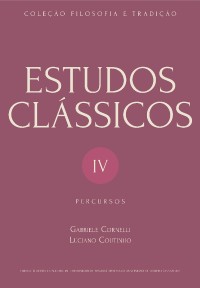Please use this identifier to cite or link to this item:
https://hdl.handle.net/10316.2/46080| DC Field | Value | Language |
|---|---|---|
| dc.contributor.author | Winter, Estéfano Luís de Sá | |
| dc.date.accessioned | 2019-03-21T12:51:54Z | |
| dc.date.accessioned | 2020-09-04T16:26:15Z | - |
| dc.date.available | 2019-03-21T12:51:54Z | |
| dc.date.available | 2020-09-04T16:26:15Z | - |
| dc.date.issued | 2018 | - |
| dc.identifier.isbn | 978-989-26-1584-4 (PDF) | |
| dc.identifier.uri | https://hdl.handle.net/10316.2/46080 | - |
| dc.description.abstract | The Aristotle’s discussion on ostracism can be understood as a defense of tyranny, especially for us, moderns, which saw the rise of totalitarian regimes post-World War I and their use of the speech willing the banishment of members of the State to maintain the power. For this reason, it was created an interpretive bias about this instrument exposed in the Politics, letting its research in the shadows. However, when we conduct an analysis of its historical assumption, we observe that this instrument was justified for Aristotle when its utilization was done within well-defined contours. The ostracism’s defense has been related with the Aristotle point of view of the community and the Greek man and is based on middle term’s theory presented in his Ethics. Therefore, in this paper we present an interpretation that shows how the banishment of community’s members has a philosophical explanation in the Politics and was necessary for the maintenance of the polis, based in the theory of middle term that was exhibited in the Ethics. | eng |
| dc.description.abstract | A discussão de Aristóteles sobre o ostracismo pode ser interpretada como uma defesa da tirania, especialmente para nós, modernos, que vimos o surgimento dos regimes totalitaristas pós-Primeira Guerra Mundial e seu uso do discurso a favor do banimento de membros do Estado para manter o poder. Por causa disso, criou-se certo preconceito interpretativo desse instrumento exposto na Política e sua investigação foi relegada para um segundo plano. Contudo, quando realizamos um exame dos seus pressupostos históricos, observamos que esse instrumento era justificado para Aristóteles quando seu exercício ocorria dentro em contornos bem delimitados. A defesa do ostracismo está correlacionada à visão de Aristóteles sobre a comunidade e o homem grego, além de estar baseada na teoria da mediania/meio-termo exposta na sua obra Ética. Por isso, apresentamos neste texto uma interpretação que mostra como a prática do banimento de membros da comunidade encontrava justificação filosófica na Política e era vista como necessária para a manutenção da polis, baseada na teoria da mediana/meio termo exposta na Ética. | por |
| dc.language.iso | por | - |
| dc.publisher | Imprensa da Universidade de Coimbra | por |
| dc.relation.ispartof | http://hdl.handle.net/10316.2/46063 | por |
| dc.rights | open access | - |
| dc.subject | Polis | eng |
| dc.subject | Aristotle | eng |
| dc.subject | Ostracism | eng |
| dc.subject | Middle term (meson) | eng |
| dc.subject | Polis | por |
| dc.subject | Aristóteles | por |
| dc.subject | Ostracismo | por |
| dc.subject | Mediania/Meio-termo | por |
| dc.title | Individualidade e coletividade na polis: um exame sobre o conceito de ostracismo na Política de Aristóteles | por |
| dc.title.alternative | Individuality and collectivity in the polis: an analysis on the concept of ostracism in the Aristotle’s Politics | eng |
| dc.type | bookPart | por |
| uc.publication.firstPage | 384 | - |
| uc.publication.lastPage | 400 | - |
| uc.publication.location | Coimbra | por |
| dc.identifier.doi | 10.14195/978-989-26-1585-1_16 | - |
| uc.publication.section | Parte III - As cidades e os homens | por |
| uc.publication.digCollection | PB | por |
| uc.publication.orderno | 34 | - |
| uc.publication.area | Artes e Humanidades | por |
| uc.publication.bookTitle | Estudos Clássicos IV: percursos | - |
| uc.publication.manifest | https://dl.uc.pt/json/iiif/10316.2/46080/200124/manifest?manifest=/json/iiif/10316.2/46080/200124/manifest | - |
| uc.publication.thumbnail | https://dl.uc.pt/retrieve/11001306 | - |
| uc.publication.parentItemId | 55096 | - |
| uc.itemId | 68027 | - |
| item.grantfulltext | open | - |
| item.fulltext | With Fulltext | - |
| Appears in Collections: | Estudos Clássicos IV: percursos | |
Files in This Item:
| File | Description | Size | Format | |
|---|---|---|---|---|
| individualidade_e_coletiva_na_polis.pdf | 576.35 kB | Adobe PDF |  |
Items in DSpace are protected by copyright, with all rights reserved, unless otherwise indicated.
